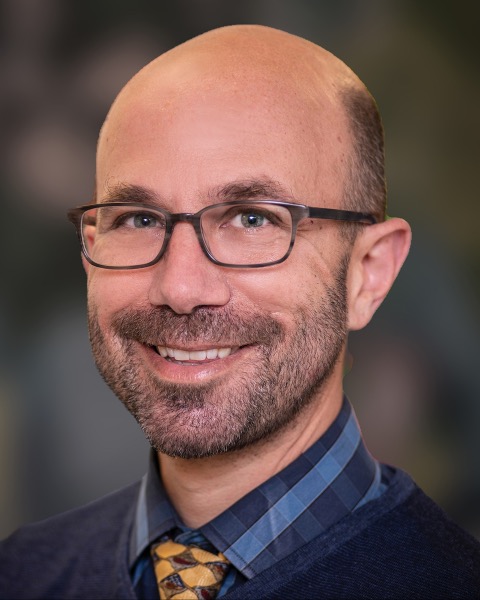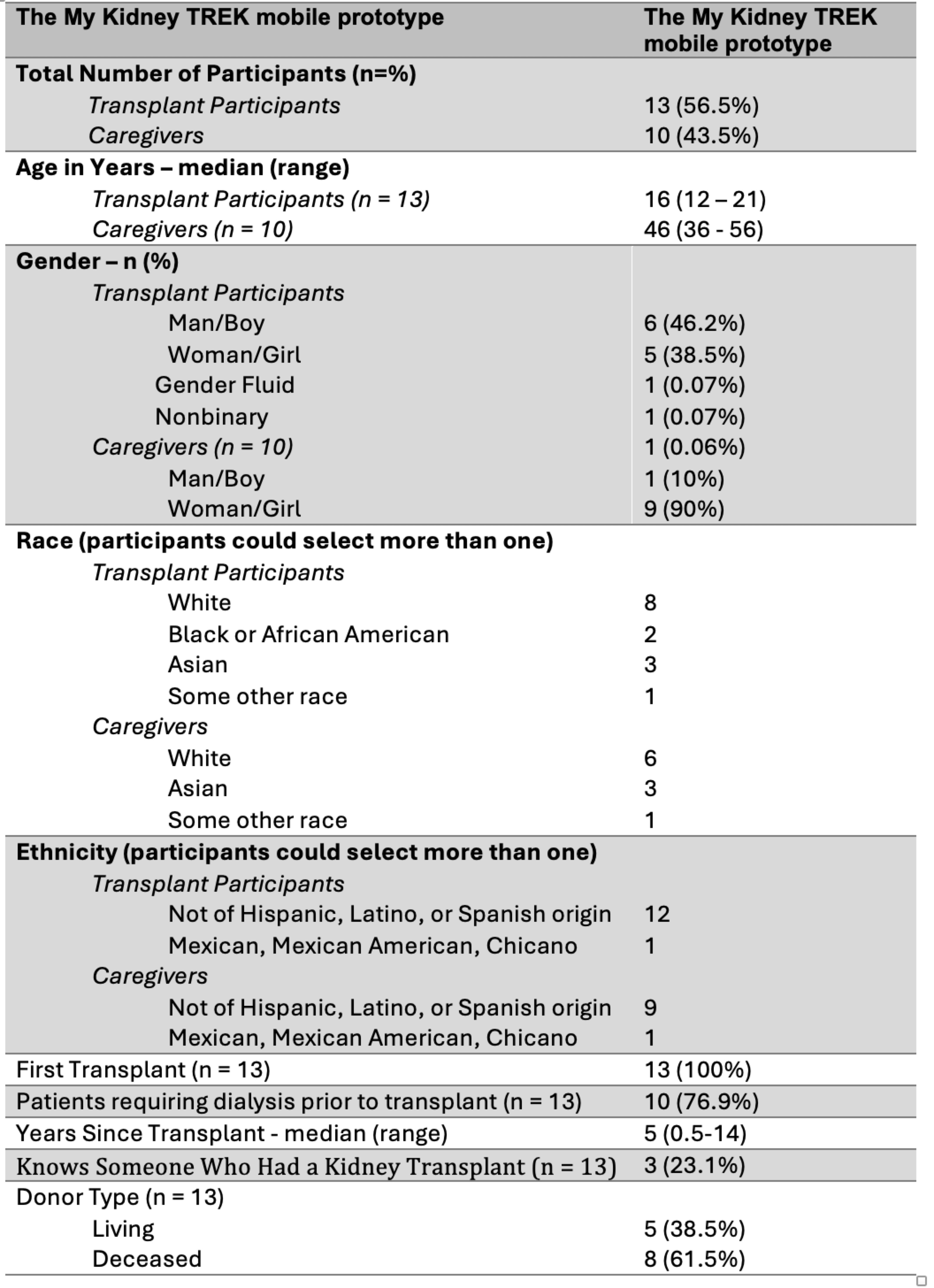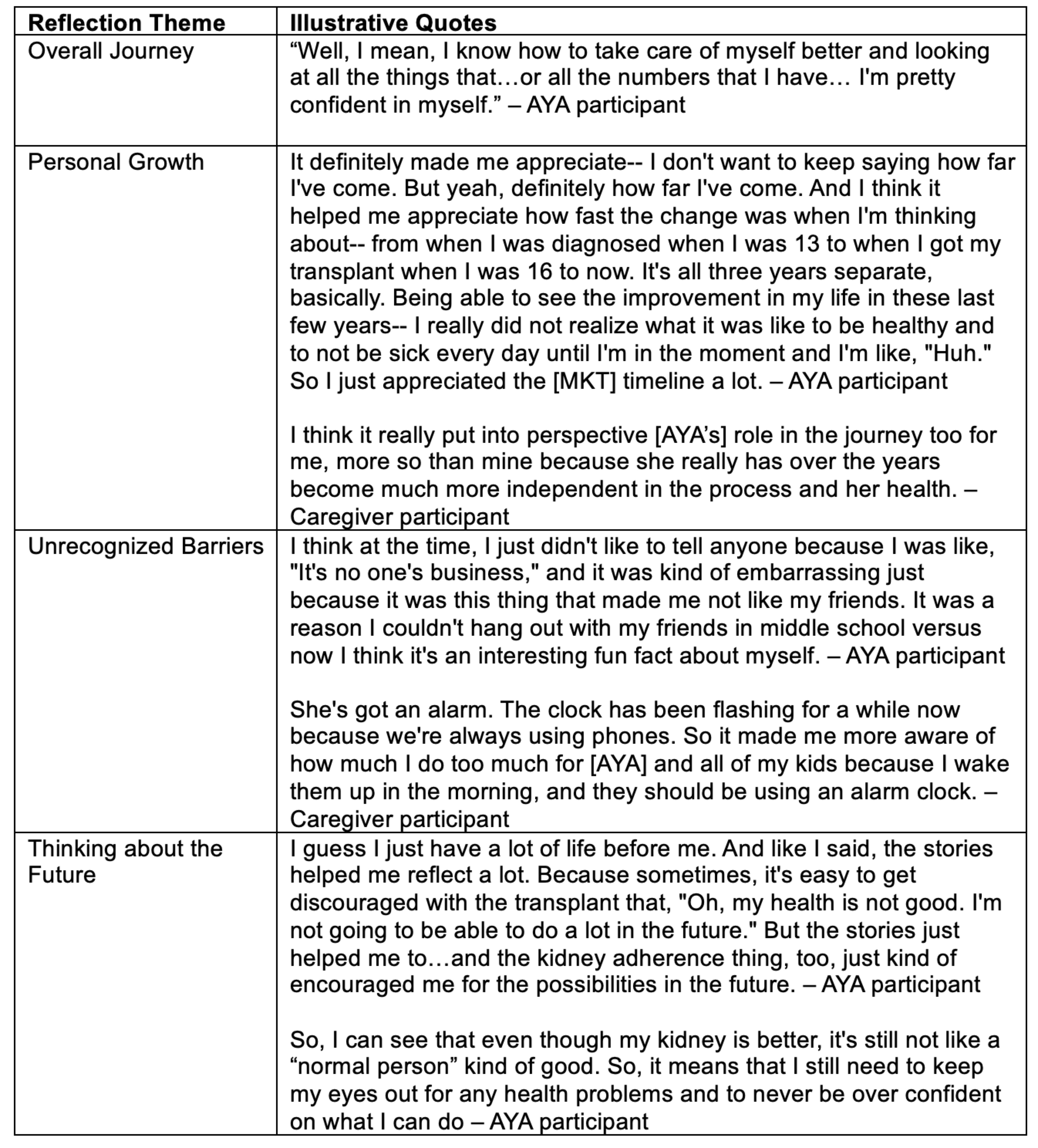Nephrology 6
Session: Nephrology 6
641 - My Kidney T.R.E.K. - Thinking, Reflecting, and Empowering Kidney Transplant Patients, through technology.
Sunday, April 27, 2025
8:30am - 10:45am HST
Publication Number: 641.5846
Julia C.. Dunbar, Seattle Children's, Shoreline, WA, United States; Wanda Pratt, University of Washington, Seattle, WA, United States; Lily V. Jeffs, Seattle Children's, Redwood City, CA, United States; Chelsea Ng, Seattle Children's, Seattle, WA, United States; Sanaa Syed, Seattle Children's, Seattle, WA, United States; Jodi Smith, University of Washington School of Medicine, Seattle, WA, United States; Ari Pollack, University of Washington School of Medicine, Seattle, WA, United States

Ari Pollack, MD (he/him/his)
Associate Professor
Seattle Children's
Seattle, Washington, United States
Presenting Author(s)
Background: The journey for adolescents and young adults (AYA) who have had a kidney transplant is filled with many challenges. Their overall success requires they develop self-management skills, especially as they transition to adult oriented care. Underdeveloped self-management contributes to reduced kidney allograft survival for AYA. Providing patients with self-reflection tools that capture their holistic transplant journey may help mitigate these challenges.
Objective: We aimed to understand how a novel mobile application, My Kidney TREK (MKT), would allow youth kidney transplant recipients to reflect on their transplant journeys to facilitate self-management.
Design/Methods: Based on prior user-centered design work, we created MKT (Fig 1) as a web based interactive prototype. The app presented personalized content in three areas: (1) kidney function (EHR data), (2) medication adherence, including facilitators and barriers (self-reported), and (3) personal kidney journey stories (self-reported), for AYA transplant recipients (age 12 -21 yrs) and their caregivers, from a single pediatric transplant center. MKT displayed data over time: from transplant to the present, and also asked individuals to describe a future/desired state. Participants completed an interview after interacting with MKT for 1 week, exploring how MKT impacted one’s ability to reflect on their transplant journey. Interviews were recorded, transcribed, and analyzed using thematic analysis and affinity diagramming.
Results: 23 participants completed the study (Table 1). Overall, all found value in MKT and allowed participants to gain insight in (1) their overall journey, (2) their personal growth, (3) previously unrecognized barriers, and (4) their future (Table 2). These insights further led to the development of key self-management traits including agency and self-efficacy for the youth, and instilled confidence for both youth and caregivers.
Conclusion(s): Our study piloting the MKT prototype demonstrated the value of providing AYA transplant recipients with tools that capture their longitudinal and holistic experiences. Combining traditional clinical metrics (e.g. KF or adherence) and outcomes with rich, personalized stories, provide much needed insight allowing youth to not just learn from past experiences, but also see the progress they have made along their journey and help them set achievable future goals. Ultimately, these insights will lead to increased self-management skills and support youth as they transition to adult centered care.
Figure 1
.jpg) The My Kidney TREK mobile prototype
The My Kidney TREK mobile prototypeTable 1
 AYA Transplant Recipients and Caregiver Demographics
AYA Transplant Recipients and Caregiver DemographicsTable 2
 Reflections after using the My Kidney TREK prototype
Reflections after using the My Kidney TREK prototype
